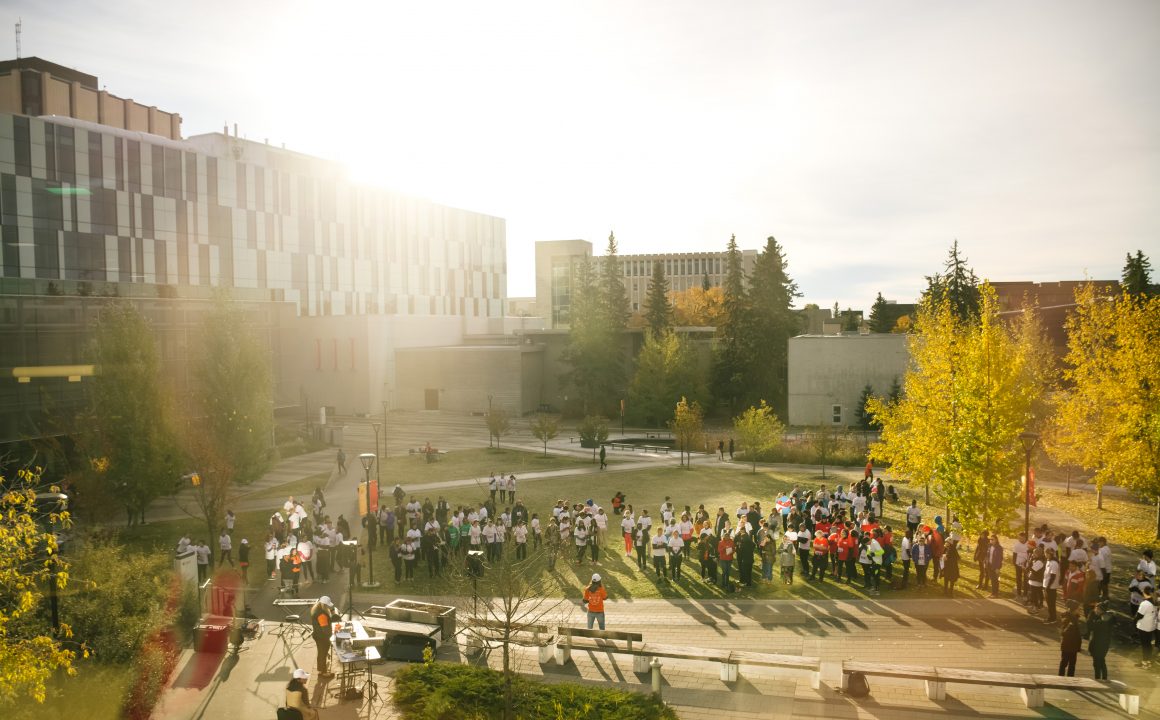
Tuition freeze extended another year
By Jason Herring and Tina Shaygan, November 30 2017 —
Students studying at Alberta’s public universities won’t have to worry about tuition increasing for another year.
Minister of Advanced Education Marlin Schmidt announced on Thursday morning in Edmonton that the Alberta government will extend the tuition freeze currently in place through the 2018–19 school year.
Publicly funded universities in Alberta, like the University of Calgary and the Mount Royal University, can’t raise their tuition rates for the duration of the freeze. The provincial New Democratic Party government first implemented a two-year tuition freeze in September 2015 and extended it for a year in October 2016 in order to keep costs the same while conducting a review of the fees and tuition model in Alberta.
In February, the U of C expressed concerns that the province would not supply the school with backfill funding, which would help negate money lost from the tuition freeze. However, the government is providing $17 million in funding to make up for the cost to institutions across Alberta.
A written statement from the University of Calgary said that the administration is happy the government is providing backfill funding.
“Because revenue from tuition represents approximately 27 per cent of UCalgary’s operating budget, we are pleased that the tuition freeze will be accompanied by a corresponding backfill payment from the government to provide compensation,” the statement read. “As we have indicated during government consultations on the tuition and funding reviews, stable and predictable funding is critical to maintaining a sustainable, accessible, affordable and quality post-secondary system for Alberta students.”
Schmidt added that backfill funding is being provided to ensure that students are not impacted by any budget shortfalls.
“We recognize that the cost of education is rising and in order to make sure that students still have the opportunities provided by our institutions but to still have affordability, the government needed to step in and backfill the difference,” he said.
Schmidt said the government consulted with students and university administrations in order to reach a decision regarding the tuition freeze extension. He added that the freeze has been extended to provide some relief to current students, as well as those looking to go to school in the future.
“We want to make sure that education remains affordable for the students who are in the system,” he said. “The other thing is that we want to make sure students who are a little bit reluctant to go to school because they’re unsure of taking on the cost associated with it feel a little more confident that they’ll be able to afford to go to school.”
Students’ Union vice-president external Puncham Judge said while she is optimistic about the freeze extension, she is concerned about the long-term affordability of post-secondary education in Alberta.
“We have called on the government to legislate tuition and tie any future increases to Consumer Price Index, regulate international tuition and close all tuition loopholes,” she said. “These are the steps to ensure post-secondary education remains affordable and accessible for all Albertans.”
“In the long run, I would still advocate for students and ensure tuition gets put in legislation because I think that is in the best interest of students,” Judge added.
In a written statement, the Council of Alberta University Students (CAUS) expressed excitement about the announcement.
“Students are thrilled to see that the government has heard them and ensured that post-secondary education remains affordable and accessible,” read the statement, attributed to CAUS chair Reed Larson.
An announcement regarding the results of the tuition and fees review is expected to happen in January.
